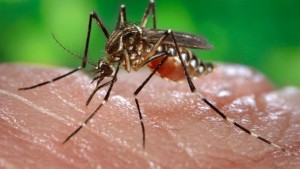 KINGSTON, Jamaica, Tuesday January 19, 2016 – The Ministry of Health in Jamaica is following the lead of health officials in Brazil and the Dominican Republic in advising women to avoid getting pregnant for now, given the possible link between mosquito-borne Zika virus and birth defects.
KINGSTON, Jamaica, Tuesday January 19, 2016 – The Ministry of Health in Jamaica is following the lead of health officials in Brazil and the Dominican Republic in advising women to avoid getting pregnant for now, given the possible link between mosquito-borne Zika virus and birth defects.
The ministry has advised women to delay pregnancy for the next six to 12 months, and those already pregnant to take extra precautions to prevent being bitten by mosquitoes.
More than 3,500 microcephaly cases were reported in Brazil between October 2015 and January 2016, in babies born to women who were infected with the Zika virus while pregnant.
Microcephaly is an abnormal growth of the brain and stunting of the growth of the head of the foetus arising from an infection in the first few months of pregnancy. Babies who develop microcephaly in the womb may not live to full term, may be born prematurely, may be still born or may survive but with life-long disability.
Minister of Health Horace Dalley says although there is no absolute proof that Zika causes microcephaly, the evidence from Brazil and the information from the Pan American Health Organization/World Health Organization (PAHO/WHO) and other technical partners is strong enough for the ministry to issue the advice.
“The Zika virus is inching closer and closer to Jamaica as several of our Caribbean neighbours have reported cases. Women are therefore being advised to delay pregnancy if possible. Those already pregnant must take action to prevent being bitten by mosquitoes as the unborn baby is at high risk if the mother is infected in the first few months of pregnancy,” he said.
Cases of the Zika virus have been confirmed in neighbouring Haiti, as well as Guyana and Barbados and several countries in Latin America.
Dalley said the ministry is on heightened alert and is scaling up vector control activities. He also called on citizens to play their part in taking the necessary steps to rid their communities of the Aedes aegypti mosquito which transmits the Zika virus.
They are advised to destroy mosquito breeding sites by disposing of or covering anything around homes, schools, churches and business places that may collect water; repair leaking pipes and outdoor faucets; cut grass short and trim shrubbery; clear roof gutters and eaves to prevent water from settling; and fill in and drain any areas where water settles when it rains.
People can protect themselves from mosquito bites by using insect repellent containing DEET, putting mesh on windows and doors and wearing long sleeved clothing where possible.
